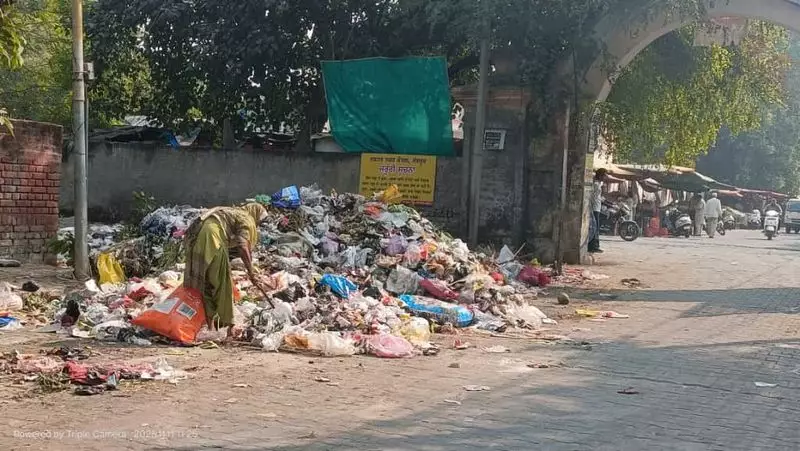
Patiala, the home district of Punjab Chief Minister Bhagwant Mann, is currently grappling with severe sanitation problems that have left residents frustrated and concerned about public health. Despite being the political backyard of the state's top leader, the area faces significant challenges in waste management and urban cleanliness.
Mounting Garbage and Public Health Concerns
The sanitation crisis in Patiala has become increasingly visible with garbage accumulating in various residential areas and public spaces. Local residents report that waste collection has become irregular, leading to piles of refuse that remain uncollected for days. This situation has created not only an eyesore but also serious health hazards for the community.
According to multiple sources, the problem has been persisting for several weeks, with particular severity noted in the past month. The timing is especially notable given that this is the home constituency of the current Chief Minister, raising questions about the implementation of the government's cleanliness initiatives at the ground level.
Municipal Corporation Under Scrutiny
The Patiala Municipal Corporation faces mounting criticism for its handling of the sanitation situation. Residents have expressed growing dissatisfaction with the civic body's response to their complaints about garbage disposal. Many allege that despite repeated requests and formal complaints, the municipal authorities have failed to address the worsening conditions.
Local community leaders point out that the sanitation staff appears to be stretched thin, with inadequate resources and manpower to handle the daily waste generation of the district. This has resulted in delayed garbage collection schedules and insufficient street cleaning operations throughout urban areas.
Broader Implications for Urban Governance
The ongoing sanitation crisis in Chief Minister Bhagwant Mann's home district raises important questions about urban governance and policy implementation. As the Aam Aadmi Party government continues to emphasize development and public welfare, the situation in Patiala serves as a crucial test case for the administration's ability to deliver basic services effectively.
Public health experts warn that prolonged exposure to uncollected waste could lead to increased incidence of vector-borne diseases and other health complications. The coming monsoon season particularly concerns health officials, as standing water combined with organic waste could create ideal breeding conditions for mosquitoes and other disease carriers.
Local residents and civic activists are now calling for immediate intervention from higher authorities, including direct attention from the Chief Minister's office. They argue that as the situation persists, it not only affects daily life but also undermines public confidence in the government's ability to manage essential urban services.
The Patiala sanitation crisis represents a significant challenge for the Punjab government, particularly given the district's symbolic importance as the Chief Minister's political home turf. How quickly and effectively authorities respond to this situation will likely have implications beyond just waste management, potentially influencing public perception of the administration's overall governance capabilities.






